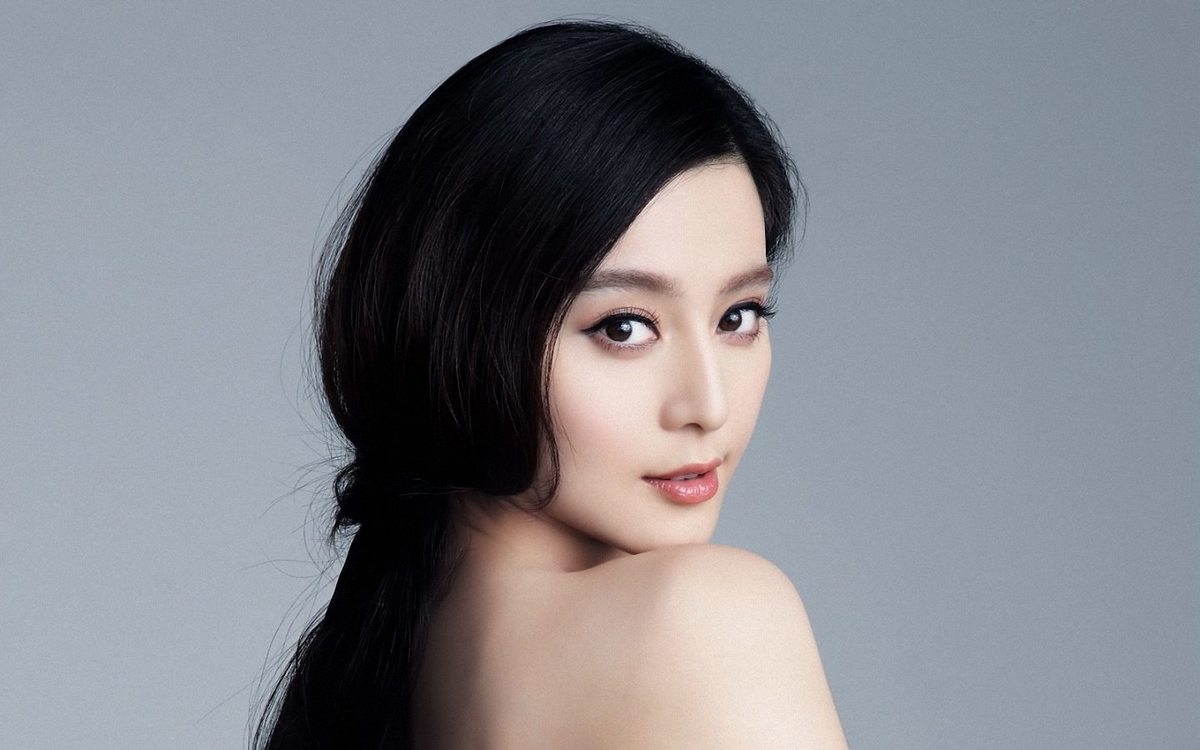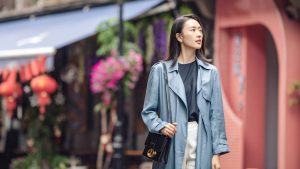- In the first in a series of occasional guest Op-eds, China Film Insider brings you the voices of two academics in Britain who are recording milestones and studying trends in the growing world of Chinese moviemaking, trends that we think everybody interested in China—film industry professional or not—ought to pause to take a moment to think about. — The Editors
Celebrity in China is big business. Celebrity feeds off of and nourishes the advertising model that underpins the commercialization of what was long a fully state-run media system and today also underpins large sections of China’s Internet, now more than 650 million web surfers strong.
Celebrity is also a powerful component in the discursive and symbolic armory used by China’s one-party-state to promote regime goals and signal accepted modes of behavior for emulation by the masses. The development and instrumentalization of celebrity by the Chinese Communist Party, the state, and business actors is motivated and sustained by the “spiritual vacuum” created by the emerging market socialist system and its associated societal dislocations and aspirations. Chinese celebrities are vehicles for the Party-state’s inculcation of nationalism, traditional virtues, and the pursuit of modernity.
Whereas Western celebrities’ public transgressions sometimes prompt popular debate about whether singers or soccer players should be considered role models, no such discussion is necessary in China. As an editorial in the state-run newspaper People’s Daily put it, “As public figures, celebrities have a huge influence on society, and are often imitated by fans. Although their social responsibility as public figures is not clearly stipulated, it is very much a moral issue.”
The Chinese celebrity industry is a product of the emergence of the “market socialist” economy. Economic reforms and urbanization, increasingly widespread prosperity, and the associated rise of consumerism, commercialization of the media and technological change, the growth of individualism, and decline of socialist ideology have all contributed to the emergence of a celebrity industry and culture in China. The consolidation of a media and entertainment system combining control and commercialization during the rule of former President Hu Jintao (2002-2012) created the dual constituencies of the Party-state and the public. With the removal of state subsidies, but not state restrictions on content, the media and entertainment industries were compelled to adopt advertising-led business models while keeping content within deliberately vague and moving boundaries set by the Party-state. Commercial soft entertainment formats (pop music, chat shows, reality TV, action movies) were generally a safe way of achieving both ends, with insatiable demand arising from Chinese audiences used to and tired of a diet of serious but dull political fare.
Expanded media and entertainment scenes provided opportunities for outside celebrities, particularly actors and singers from Hong Kong and Taiwan, to establish themselves in China. The subsequent growth of domestic entertainment sectors and the professionalization of other components of the celebrity industry (notably advertising and PR) have accompanied the large-scale fabrication of domestic celebrities.
Ubiquitous popular exposure has imbued individual performers with wealth, visibility, and influence within large fan bases. We would even go as far as to say that major Chinese celebrities are an embodiment of “soft power,” which, fundamentally, is the power of attraction. This celebrity soft power is derived from carefully packaged looks, persona, lifestyles—and often the merging together of artistic roles and reality. It is their attractiveness as aspirational symbols that underpin the Party-state’s regulation and instrumentalization of celebrities. The celebrity industry operates within an interlinked commercial, technological, legal and political structure, with official discourses embedding celebrity culture in broader narratives around patriotism, progress, and stability. Guided from on high within the Party by the Central Publicity Department, the Ministry of Culture and the State Administration of Press, Publication, Radio, Film and Television decide who performs when, where, and under what circumstances, and have the power to determine celebrity appearances across the Chinese media-scape, including prohibiting media from featuring “celebrities embroiled in scandals.” In 2008, for instance, the Party banned media coverage of Tang Wei(汤唯), a Chinese actress who starred in Taiwanese-American director Ang Lee’s (Li An 李安) Lust, Caution (Se, Jie 色,戒) after the film was criticized by the central government for “glorifying traitors and insulting patriots.” As this case suggests, Chinese celebrity is deeply embedded within the Party’s nationalistic project after 1989, when a democracy movement centered on Tiananmen Square presented the Party with its most direct challenge since its rise to power. Actress Zhang Ziyi (章子怡), whose global stardom is predicated on having become the embodiment of the new, global China was similarly censured for playing the paramour of a Japanese man in Memoirs of a Geisha, a Hollywood production of an American novel. Zhang, a Global Ambassador for the Special Olympics, was accused of “betraying national loyalties” and subject to online abuse when naked images of her on set with Japanese co-star Ken Watanabe were posted maliciously on China’s popular Tianya Internet forum.
Beyond a comprehensive formal regulatory framework and extensive informal connections between state and commercial enterprises throughout the industry, it is also shaped by a range of “carrot-and-stick” methods that seek to co-opt celebrities into behaviors aligned with the state agenda. Celebrities who do so can thrive. According to Forbes, Actress Fan Bingbing(范冰冰)and notably apolitical Taiwanese pop singer and actor Jay Chou(周杰倫)both earned more than 100 RMB in 2014. Actor Jackie Chan (成龙) and former NBA player Yao Ming (姚明) are among 30 celebrities selected to the Chinese People’s Political Consultative Conference—a sort of lay advisory to China’s legislators— and enjoy close ties with Chinese business communities. Celebrities such as Chan and Yao are conservative status quo figures whose celebrity has been incorporated into the prevailing power structure. Foreign celebrities who “hurt the feelings of the Chinese people” or domestics celebrities whose behavior transgresses accepted norms (e.g. by criticizing the state) or) find themselves banned from media coverage, and shows and endorsements are cancelled, or they are forced to make public apologies andspend time under arrest or in jail. The dominant message transmitted by Chinese celebrities from Alibaba CEO Jack Ma (马云) to action movie star Jet Li (李连杰) is that persistence, cultivation of talent, and compliance within the status quo of the CCP regime are rewarded with financial, social, and symbolic power. Punishment awaits those who don’t comply, by criticizing the regime or by partaking in the less salubrious aspects of urban life. Actor Huang Haibo (黄海波)spent six months in “custody and education” in 2014 for soliciting sex, reflecting upon release that “as a public figure, I failed as a role model,” echoing the language used by the state media to report his fall. Rising star Taiwanese actor Kai Ko(柯震东)was arrested in 2014 (with Hong Kong actor Jaycee Chan (陈祖明), son of Jacky Chan (成龙)) for using marijuana after having appeared in anti-drug advertisements. Ko and Chan’s movies were briefly banned, and Kai made a tearful public apology after release from a two-week detention in Beijing.
The creation and consumption of celebrity in China is anything but a mindless act. It is a site of learning in which the “quality” and “civilization” of the people are aligned to prescribed ways of behaving, including exhibiting the “middle class values” underpinning former President Hu’s “harmonious society” and current President Xi Jinping’s vision of the “Chinese Dream”. Celebrities contribute to this project by embodying aspirational ways of urban modernity. The Party-state attributes a range of “responsibilities” that come with celebrity status, adding specific layers of regulation to individual celebrity conduct to reinforce the multidimensional controls already prevailing over the media, Internet, cultural outputs and society in general. The Party also has an appreciation of the utility of the mechanics of contemporary celebrity creation, incorporating lessons from professional PR, marketing, and advertising into a hybrid celebrity-propaganda system used to promote some state actors and state-sanctioned role models.
For many would-be performers the long road to success begins with admission into one of China’s state-run performing arts academies. A great majority of musicians and actors attended a state conservatory, dance, or drama academy, which act as incubators for the industry talent pool. Actresses Gong Li(巩俐)and Zhang Ziyi (章子怡)each was famously discovered by film director Zhang Yimou (张艺谋)while attending Beijing’s Central Academy of Drama (Zhang graduated from the Beijing Film Academy). Action movie stars Jet Li (李连杰)and Jacky Chan honed their trademark martial arts skills at academies for wushu and drama. Discovery by a talent agency particularly a major player like the Huayi Brothers film and media conglomerate (华谊兄弟)—which represents actresses such as Li Bingbing (李冰冰)and actor Chen He (陈赫)—is a ticket to film roles, recording contracts, and endorsement deals. Chinese celebrities endorse everything from DeBeer diamonds (Zhao Wei 赵薇) to White Rabbit Acne Cream (G.E.M. 邓紫棋), with some individuals representing a dozen or more brands. Numerous Chinese celebrities, including actresses Li Bingbing(李冰冰)and Zhou Xun (周迅), and Olympian Liu Xiang (刘翔), have gained global recognition as representatives for Gucci, Chanel, and Nike respectively. Celebrity endorsements are closely monitored by the State Administration of Industry and Commerce under its Code of Advertising Ethics. The national Advertising Law, first launched in 1995, was updated in 2015 to include liability provisions for celebrity appearances in advertisements. Failure to comply can result in fines, confiscated fees or bans from acting as a product spokesperson. The law is a response to numerous celebrity endorsements that were misleading or connected to faulty products. A notorious case involved infant formula produced by the state-owned Sanlu Group (三鹿集团) that was tainted with melamine and killed six and harmed 300,000 children in 2008. Actress Deng Jie (邓婕) had appeared in TV advertisements saying, “I trust Sanlu milk powder.”
In addition to the overweening attention of the state and the self-protective measures employed by the industry in their dealings with individual performers, celebrities are also expected by the state, the industry, and consumers to conform to dominant social norms such as frugality, filial piety, faithfulness, and the collective good, both on and off-stage. The celebrity wedding provides an illustration. When actress/ballerina Liu Shishi(刘诗诗)married Taiwanese singer/actor Nicky Wu (Wu Qilong 吴奇隆) in March, it was widely reported across all major media outlets and was an extensive trending topic on social media. While commercial outlets obsessed over Liu’s dress and the venue (the Indonesian island of Bali) , the state-run People’s Daily report focused instead on the parents’ hope that the couple would quickly have a child and on the diamond that Liu gave as a “filial gift,” while China Daily honed in on how the couple had knelt before their parents and served them tea. However, when starlet Angelababy(杨颖)married actor Huang Xiaoming (黄晓明) in 2015, the groom was forced to defend the extravagance of the ceremony held at Shanghai Exhibition Center, which featured 2000 guests, a three meter-high cake, a five-carat diamond ring, and cost a reported $31 million. People’s Daily decried the extravagance saying it would have a negative impact on social order. Combined with widespread ambivalence towards the rich and powerful, Chinese celebrities face highly constrained professional and personal lives.
—Dr Jonathan Sullivan is associate professor and director of research at the school of contemporary Chinese studies, University of Nottingham. Tricia Kehoe is a PhD student in the same department with interests in Tibet, gender, and the Internet.






